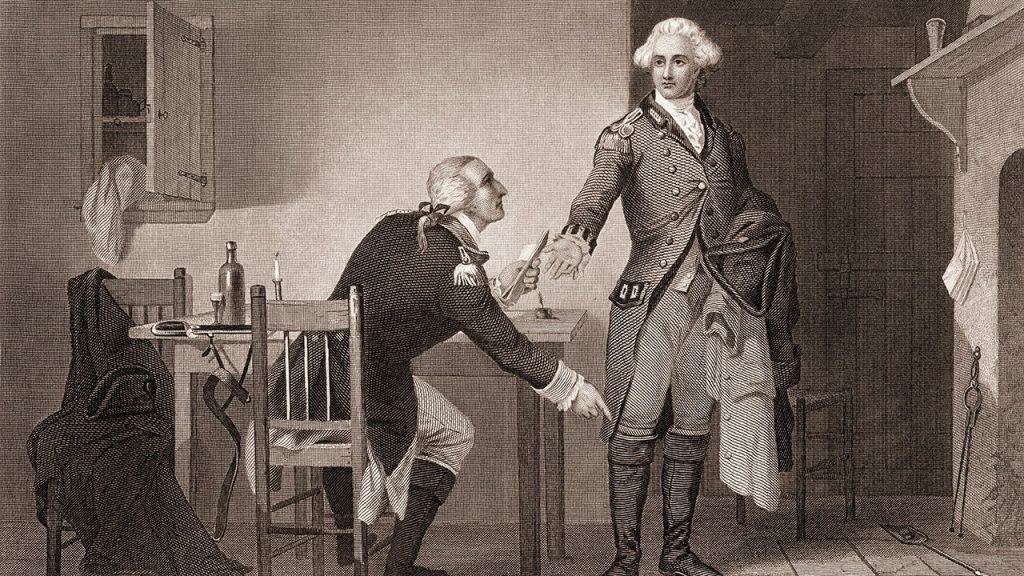On September 21, 1780, American combat officer Benedict Arnold met secretly with British Major John Andre with a plot to trade the colonial stronghold at West Point for cash. The meeting took place at the home of New York loyalist Joshua Hett Smith. General George Washington soon discovered the treachery, leading to Arnold fleeing to British-controlled New York City. He served in the losing army for the remainder of the American Revolution and died in London in 1801, while Andre was captured and executed for his involvement in the plot.
The name Benedict Arnold remains a synonym for “traitor” in American English, with historians speculating on various reasons for his betrayal, including greed, mounting debts, resentment towards other officers, and a desire for the colonies to remain under British rule. Arnold was reportedly offered 20,000 British pounds to hand over the American fortification at West Point, showcasing his desire for wealth over patriotism. Despite his betrayal, Arnold had served with distinction in the early days of the American Revolution and rose to the rank of major general, showcasing his complex character.
Benedict Arnold had a distinguished military career during the American Revolution, joining the army of New England Minutemen in the siege of Boston in 1775 and helping capture Fort Ticonderoga on Lake Champlain. His heroism in battles such as Saratoga helped encourage France to join the American cause. Despite his successes on the battlefield, Arnold felt unappreciated by his fellow officers and Congress, leading to his resignation from the Continental Army in 1777. Washington trusted Arnold enough to give him command of West Point, a critical fortress on the Hudson River, before his defection.
Arnold’s personal life also played a role in his betrayal, with his marriage to American loyalist Margaret Shippen, a British spy, influencing his decision to plot with Major Andre. Despite being promised 20,000 pounds for his treason, Arnold only received 5,000 pounds in exchange for his role in the betrayal. The extent of Arnold’s treachery was compared to Judas by Benjamin Franklin, highlighting the infamy he brought upon himself and his family. His heroism on the battlefield made his betrayal even more shocking and appalling to his contemporaries.
Despite his actions, Arnold’s betrayal remains a controversial and complex chapter in American history, with conflicting opinions on his motivations and character. His role in the plot to trade West Point to the British has cemented his legacy as one of America’s most infamous traitors. The events of September 21, 1780, marked a turning point in Arnold’s life and reputation, leading to his eventual defection to the British side. However, his earlier military exploits and contributions to the American cause cannot be overlooked, showcasing the complexity of his character and the impact of his actions during the Revolutionary War.


